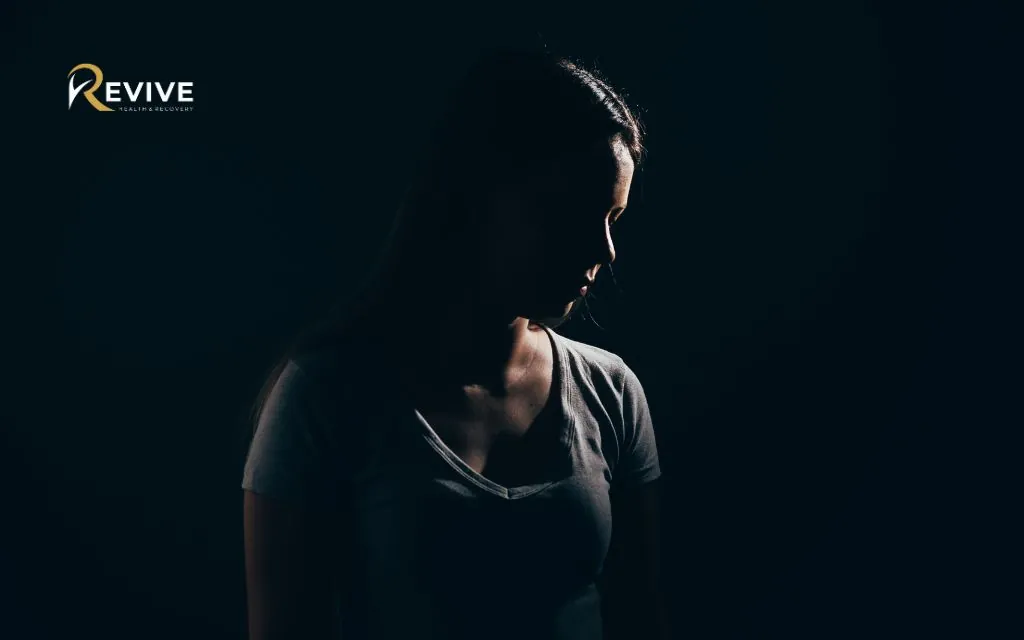Anxiety is one of the most common mental health challenges in the United States, affecting millions of people every year. Its impact goes beyond just feeling worried or stressed—it can disrupt relationships, hinder career goals, and significantly diminish overall quality of life. For those struggling with anxiety, even simple daily tasks can feel overwhelming.
The good news is that effective anxiety treatment is available, offering hope and a path to healing. From therapy and mindfulness techniques to personalized care at places like Revive Health Recovery, the right support can help you overcome anxiety and reclaim control of your life.
If you’re searching for compassionate, professional anxiety treatment Denver, look no further than Revive Health Recovery. With expert care tailored to your unique needs, we’re here to guide you toward relief, balance, and long-term well-being. Let’s explore how you can start your journey to peace of mind today.
Understanding Anxiety Disorders
Anxiety is a natural response to stress, and a little bit of anxiety can actually be helpful sometimes. It can make us more alert, help us stay focused, and prepare us to deal with challenges or dangers.
However, anxiety disorders are different from normal nervous feelings. They involve too much fear or worry that doesn’t go away and can interfere with daily life. Anxiety disorders are the most common type of mental health condition, but the good news is they can be treated, and help is always available.
Types of Anxiety Disorders
There are different types of anxiety disorders, as explained in a book called the DSM-5, which doctors use to diagnose mental health conditions. Here are some of the most common ones:
- Generalized Anxiety Disorder (GAD): This type causes constant worry and fear about everyday things like work, health, or chores.
- Panic Disorder: People with this condition have sudden and unexpected panic attacks. These attacks can happen without warning and aren’t caused by another health problem. Sometimes, people with panic disorder may also fear going places where they can’t escape (agoraphobia).
- Specific Phobias: A phobia is an intense fear of something that disrupts your daily life. There are many types of phobias, like fear of heights or spiders, but they are usually grouped under one diagnosis called “specific phobia.” Agoraphobia is one specific type with its own diagnosis.
- Social Anxiety Disorder: This type involves a strong fear of being judged, watched, or embarrassed in social situations. It can make everyday activities like speaking in front of others feel very stressful.

Common Symptoms of Anxiety Disorders
The main sign of anxiety disorders is feeling too much fear or worry, often more than the situation calls for. Anxiety can also make it hard to breathe, sleep, sit still, or focus. The exact symptoms depend on the type of anxiety disorder you have.
Common symptoms include:
- Feeling panic, fear, or a sense of danger
- Trouble sleeping or always feeling tired
- Restlessness or not being able to sit still
- Cold, sweaty, numb, or tingling hands or feet
- Shortness of breath or breathing too quickly (hyperventilation)
- A racing or pounding heart
- Shaking or trembling
- Dry mouth
- Upset stomach, nausea, or other digestive issues
- Tight or tense muscles
- Feeling dizzy or weak
- Overthinking a problem and not being able to stop
- Trouble concentrating
- Avoiding things or places that cause fear
What Are the Warning Signs You Need to Get Help Immediately?
- Your worries are taking over and making it hard to work, enjoy relationships, or do everyday things.
- You’re feeling sad, using alcohol or drugs to cope, or dealing with other mental health challenges along with anxiety.
- You think your anxiety might be connected to a physical health issue.
- You have thoughts of hurting yourself or others.
Anxiety usually doesn’t go away on its own, and it might get worse without help. Reaching out to a doctor or mental health professional early makes treatment easier and can help you feel better faster. You don’t have to face this alone!
How Can Therapy Help Your Anxiety?
Individual therapy, also called talk therapy, is a type of treatment where you work one-on-one with a therapist to better understand and manage your thoughts, feelings, and actions. It can be very helpful for people dealing with anxiety disorders.
Here’s how therapy can make a difference:
Understanding the Causes
Therapy can help people figure out what’s causing their anxiety. This might mean looking at past experiences or tough situations that could be affecting them now. By understanding these causes, they can learn more about their anxiety and discover ways to manage it and feel better.
Learn Ways to Cope
Therapy teaches helpful strategies to manage anxiety. These might include relaxation exercises like deep breathing and mindfulness, or techniques to change negative thinking into more positive thoughts.

Build Strength to Handle Stress
Anxiety can make dealing with daily challenges harder. Therapy helps people build resilience, giving them healthier ways to manage stress and feel more in control of their lives.
Create a Personal Plan
Everyone’s experience with anxiety is different, so their treatment should be too. In therapy, you can work with a mental health professional to create a plan that fits your specific needs and goals, helping you move toward a happier, calmer life.
Types of Anxiety Treatment Denver
There are many types of therapy that can help treat anxiety. The most common one is Cognitive Behavioral Therapy (CBT), but therapists may also use other methods depending on the type of anxiety. Your therapist will work with you to find the best approach for your needs, helping you feel better and take control of your anxiety.
Cognitive Behavioral Therapy (CBT)
CBT, or Cognitive Behavioral Therapy, is one of the most common ways to treat anxiety because it’s been well-studied and works for many people. CBT is a practical, hands-on therapy that helps you change unhelpful thoughts and behaviors. It teaches skills to handle tough situations, feel more in control, and build confidence in managing anxiety.
Dialectical Behavioral Therapy (DBT)
Dialectical Behavior Therapy (DBT) is a type of CBT that helps people deal with situations that feel conflicting. For example, you can accept that you have anxiety while also working on ways to manage it better. DBT focuses on mindfulness, handling tough emotions, staying calm under stress, and improving relationships with others.
It’s especially helpful for treating conditions like generalized anxiety disorder, panic disorder, PTSD, and OCD. With DBT, you can learn skills to feel more in control and confident in managing your anxiety.
Eye Movement Desensitization and Reprocessing (EMDR)
EMDR, or Eye Movement Desensitization and Reprocessing, helps people heal from traumatic experiences by using the brain’s natural ability to recover. A therapist guides the person through special techniques like moving their eyes, tapping, or listening to tones, which helps reprocess difficult memories and reduce emotional and physical distress.
EMDR is especially helpful for anxiety caused by trauma, such as PTSD or specific fears (phobias). It can also be used to work through life events that might have triggered generalized anxiety or panic disorders. While it’s not used for all types of anxiety, EMDR can be an important tool to help people process and overcome specific past experiences.
Psychodynamic Therapy
Psychodynamic therapy is a shorter and more focused version of psychoanalytic therapy. It looks at how early childhood experiences and the unconscious mind affect your thoughts and feelings today. This type of therapy helps people understand themselves better and find ways to reduce anxiety.

Medications
Different types of medications can help with anxiety, depending on the kind of anxiety you have and if you have other health conditions. Here are some examples:
- Some antidepressants can also help treat anxiety.
- A medication called buspirone is often used for anxiety relief.
- In certain cases, your doctor might recommend short-term medications like sedatives (benzodiazepines) or beta blockers. These are meant to provide quick relief but aren’t used for a long time.
Lifestyle and home remedies
While therapy and medications are often needed to manage anxiety, making healthy lifestyle changes can also help. Here are some simple things you can do:
- Stay Active: Exercise regularly—it’s a great way to reduce stress, boost your mood, and stay healthy. Start small and gradually increase how much and how often you exercise.
- Avoid Alcohol and Drugs: These can make anxiety worse. If stopping feels hard, talk to your doctor or join a support group for help.
- Limit Caffeine and Quit Smoking: Both nicotine and caffeine can increase anxiety, so cutting back or quitting can make a big difference.
- Practice Relaxation: Try techniques like meditation, yoga, or visualization to help calm your mind and manage stress.
- Get Enough Sleep: Make sleep a priority by creating a relaxing bedtime routine. If you’re struggling to sleep, talk to your doctor.
- Eat Healthy Foods: Focus on eating lots of vegetables, fruits, whole grains, and fish. A healthy diet may help reduce anxiety and keep you feeling your best.
These small changes can go a long way in helping you feel more in control and improving your overall well-being.
What Should I Expect in My Anxiety Treatment Denver?
Millions of people around the world struggle with anxiety, so it’s important to get help from a mental health professional if you’re looking for lasting relief. If you’re thinking about starting anxiety treatment Denver, understanding what to expect can help make the process easier and set you up for success with your care team.
Initial Consultations
Starting therapy with a new care provider is an important step in managing your mental health in Denver. In the first few sessions, your therapist will learn about your anxiety, medical history, and how your symptoms affect your life. These meetings are also a chance for you to build trust with your therapist and talk about your goals for treatment.
These early sessions help create a plan designed just for you, whether you’re dealing with generalized anxiety, social anxiety, or panic disorder. Here’s what you can expect:
- An explanation of the therapy process and what future sessions will include
- A discussion about your symptoms and how they impact your daily life
- Information on proven treatments and how they can help
- A safe space to share your thoughts, ask questions, and feel heard
Ongoing Medication Management
As your treatment continues, your therapist will work closely with you to explore the best options for your care. This might include a formal diagnosis and, if needed, a prescription for medication to help manage your symptoms.
In follow-up sessions, you’ll talk about how the medication is working, any side effects you might feel, and adjust the plan as needed. Your therapist will also help you develop new strategies to handle anxiety and keep moving toward a healthier, happier life.
Tracking Your Progress
Regular check-ins are an important part of anxiety treatment Denver. These progress assessments help you and your therapist see how well your treatment is working and if any changes are needed. They’re a great way to reflect on how far you’ve come and find areas that might need more focus.
Your feedback is key at every step of your treatment. Managing anxiety takes teamwork, time, and effort, but staying committed and open with your care provider can lead to lasting, positive results. Remember, each step brings you closer to feeling better and living your best life.

Conclusion
Anxiety treatment Denver offers hope for a brighter, more balanced life. Whether through therapy, medication, or simple lifestyle changes, there’s a way to feel better. At Revive Health Recovery, compassionate care and personalized treatment help you face anxiety with confidence and strength. Remember, you’re not alone, and taking the first step toward help is a powerful move toward peace of mind and happiness.



